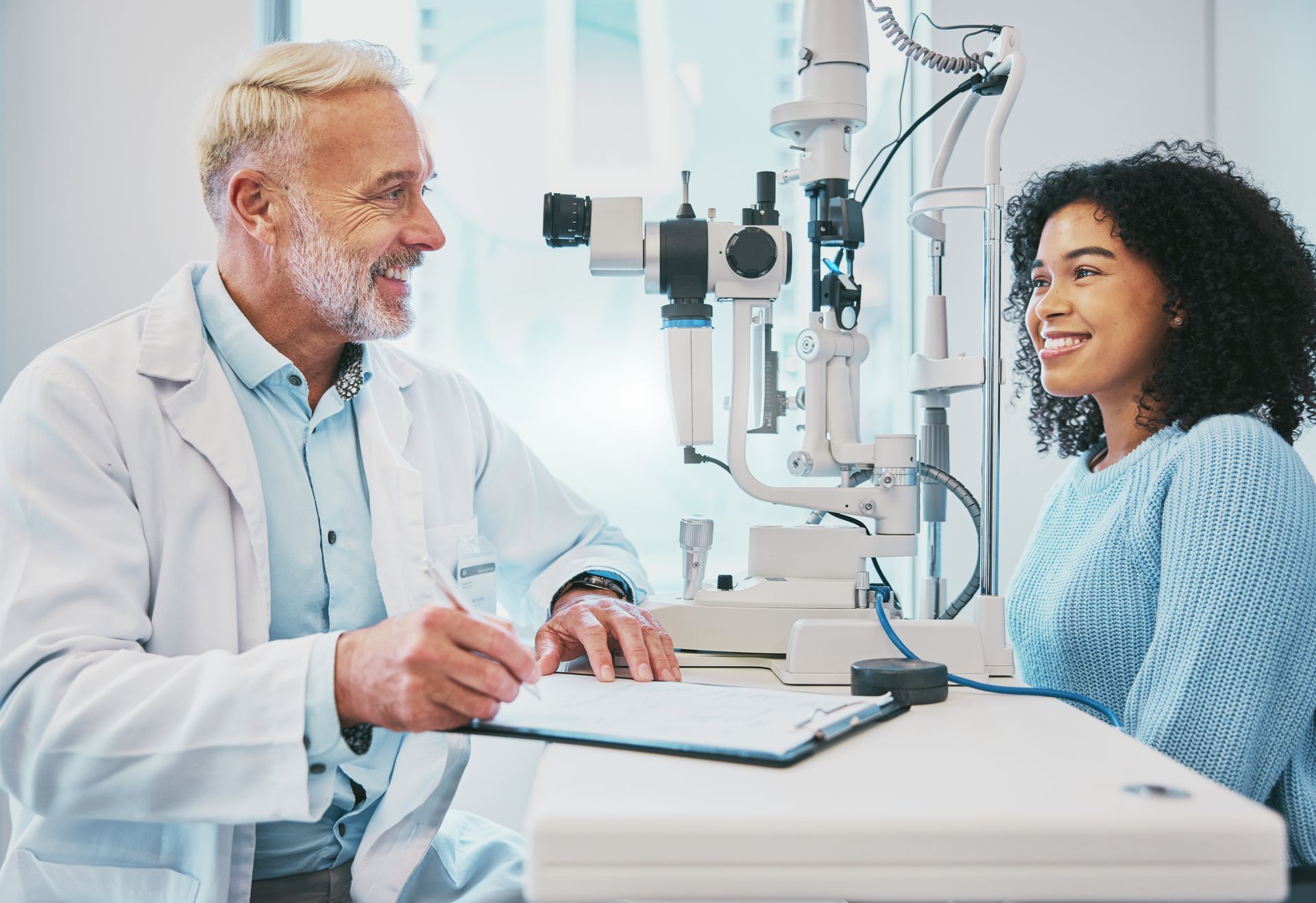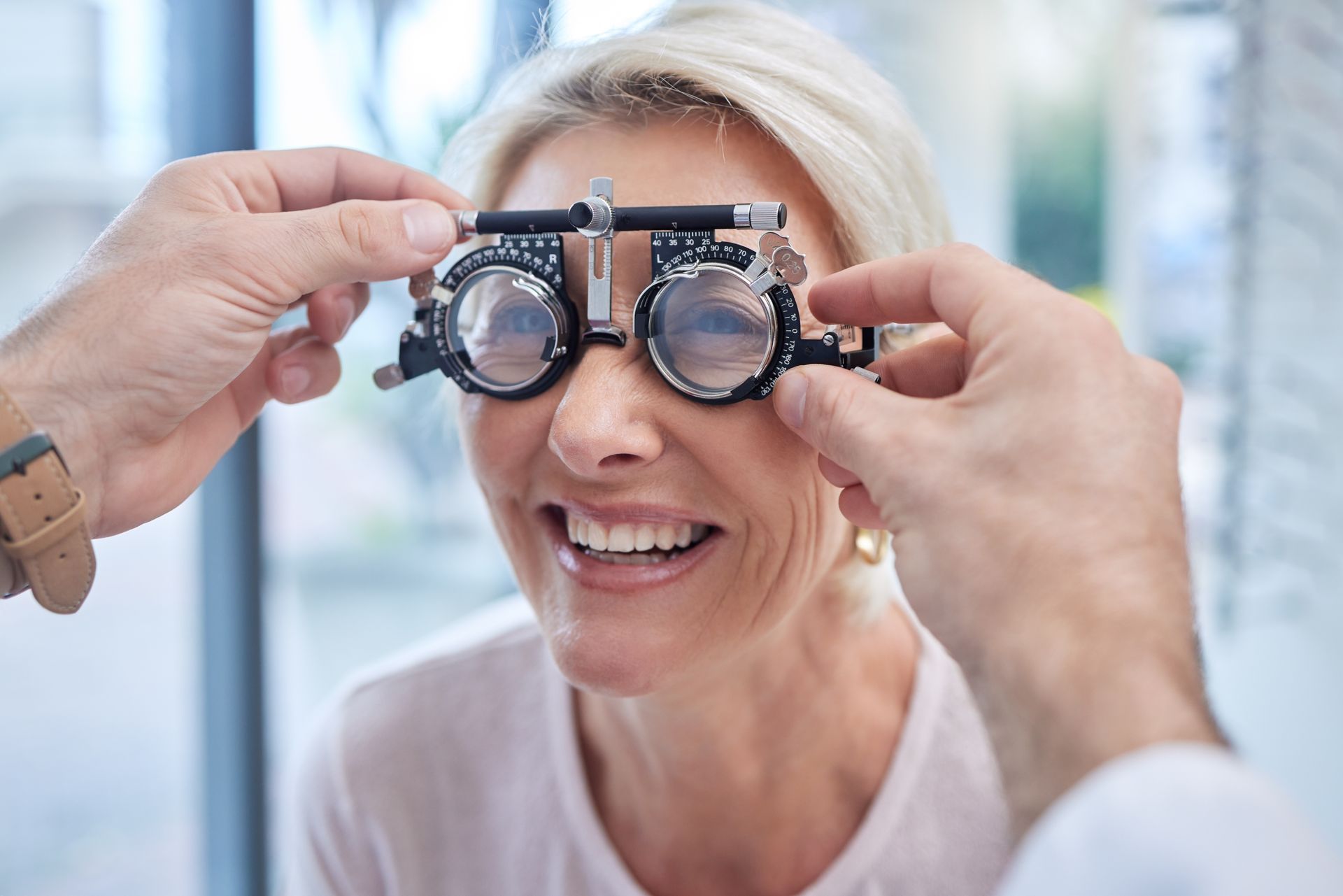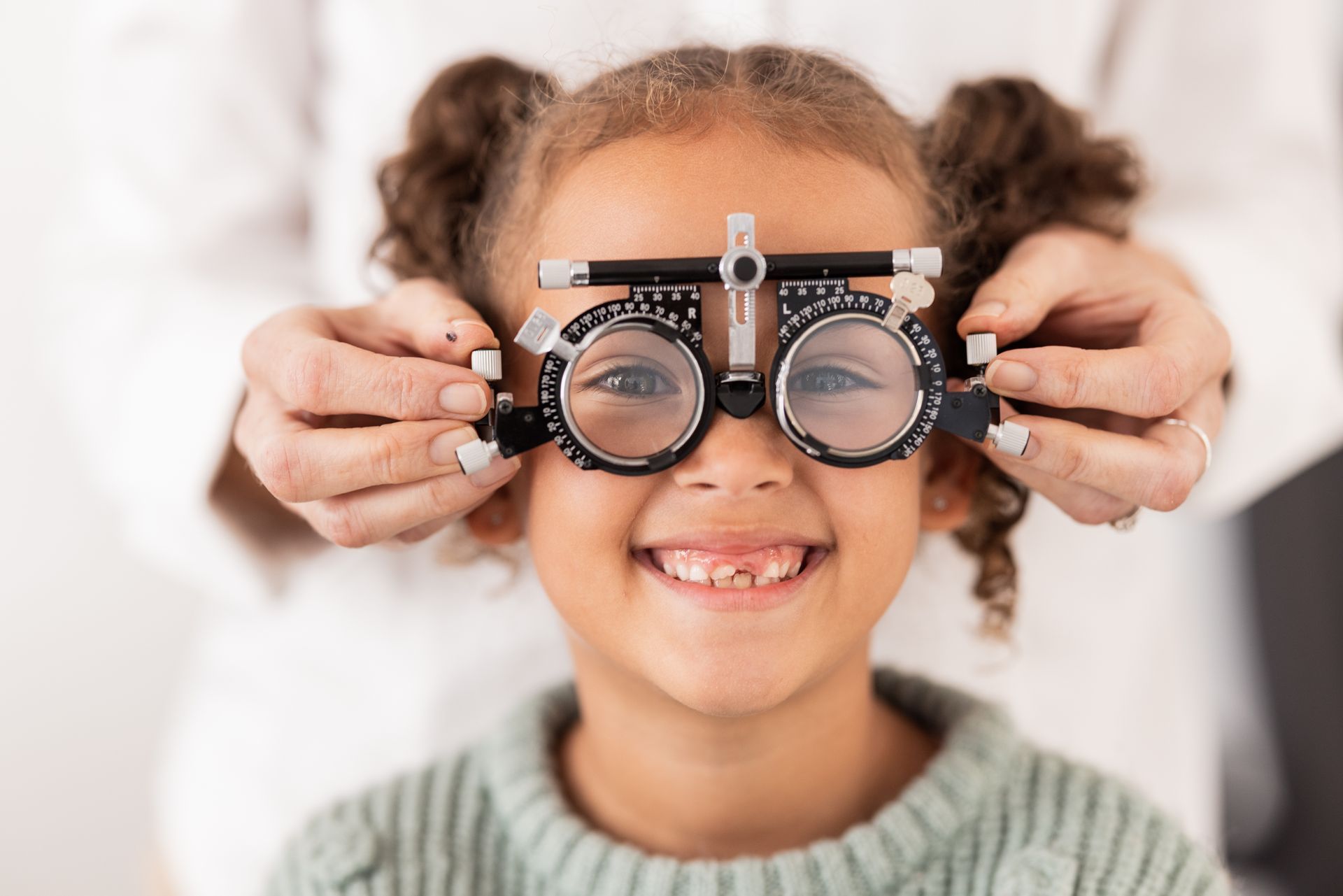Eye Exams

Comprehensive Eye Care for the Whole Family
At Wize Eyes of New Hyde Park, we believe that your vision is a precious asset that deserves the best care possible. Our team of experienced optometrists is dedicated to providing you with comprehensive eye exams that go beyond just checking your prescription. We take the time to understand your unique needs and offer personalized recommendations to ensure your optimal eye health.
What to Expect During an Eye Exam

An eye exam at Wize Eyes of New Hyde Park typically involves the following steps:
- Medical History: We'll review your personal and family history of eye problems, general health conditions, and any medications you're taking.
- Vision Testing: We'll assess your vision using various charts and tests to measure your nearsightedness, farsightedness, astigmatism, and other refractive errors.
- Eye Pressure Test: This test measures the pressure inside your eye to screen for glaucoma.
- Pupil Dilation: We may dilate your pupils with eye drops to allow for a more detailed examination of the interior of your eye.
- External Eye Examination: We'll examine the structures of your eye, including your eyelids, cornea, iris, and lens.
- Internal Eye Examination: Using specialized equipment, we'll examine the retina, optic nerve, and other internal structures of your eye.


An eye exam at Wize Eyes of New Hyde Park typically involves the following steps:
- Medical History: We'll review your personal and family history of eye problems, general health conditions, and any medications you're taking.
- Vision Testing: We'll assess your vision using various charts and tests to measure your nearsightedness, farsightedness, astigmatism, and other refractive errors.
- Eye Pressure Test: This test measures the pressure inside your eye to screen for glaucoma.
- Pupil Dilation: We may dilate your pupils with eye drops to allow for a more detailed examination of the interior of your eye.
- External Eye Examination: We'll examine the structures of your eye, including your eyelids, cornea, iris, and lens.
- Internal Eye Examination: Using specialized equipment, we'll examine the retina, optic nerve, and other internal structures of your eye.


An eye exam at Wize Eyes of New Hyde Park typically involves the following steps:
- Medical History: We'll review your personal and family history of eye problems, general health conditions, and any medications you're taking.
- Vision Testing: We'll assess your vision using various charts and tests to measure your nearsightedness, farsightedness, astigmatism, and other refractive errors.
- Eye Pressure Test: This test measures the pressure inside your eye to screen for glaucoma.
- Pupil Dilation: We may dilate your pupils with eye drops to allow for a more detailed examination of the interior of your eye.
- External Eye Examination: We'll examine the structures of your eye, including your eyelids, cornea, iris, and lens.
- Internal Eye Examination: Using specialized equipment, we'll examine the retina, optic nerve, and other internal structures of your eye.


Children's Eye Exams
It's important for children to have regular eye exams to ensure their vision develops properly. We offer comprehensive eye exams for children of all ages. Early detection of vision problems in children can help prevent future complications.
Why Choose Wize Eyes of New Hyde Park for Your Eye Exams?
State-of-the-Art Equipment
Experienced Optometrists
Personalized Care
Convenient Location
Frequently Asked Questions
How often should I get an eye exam?
The recommended frequency of eye exams varies based on individual factors such as age, overall health, and any existing eye conditions. Generally, children should have regular eye exams, while adults should consider annual check-ups. If you have a family history of eye diseases or experience any vision problems, more frequent exams may be necessary.
What are the signs of vision problems?
People often wonder about early warning signs of vision issues, such as blurry or double vision, headaches, or sensitivity to light.
Can eye exams detect diseases like glaucoma or cataracts?
Yes, eye exams can be crucial for detecting early signs of eye diseases such as glaucoma and cataracts. Regular eye exams can help identify these conditions before they progress and cause significant vision loss.
What can I expect during an eye exam?
An eye exam typically involves several tests, including vision tests, refraction test, field of vision test, color vision test, pupil dilation, and eye pressure checks.
Do I need a referral to see an optometrist?
In most cases, you do not need a referral from your primary care physician to see an optometrist. However, if you have insurance, it's always a good idea to check with your provider to determine if a referral is required for coverage. Wize Eyes can help you check with your Insurance provider.

Business Hours
Monday & Thursday: 11 AM to 7 PM
Tues, Weds, Fri & Sat: 10 AM to 6 PM
Sunday: 11 AM to 5 PM
Business Hours
Monday & Thursday: 11 AM to 7 PM
Tues, Weds, Fri & Sat: 10 AM to 6 PM
Sunday: 11 AM to 5 PM
Wize Eyes New Hyde Park | All Rights Reserved | Privacy Policy & Accessibility | Powered by PS Digital

